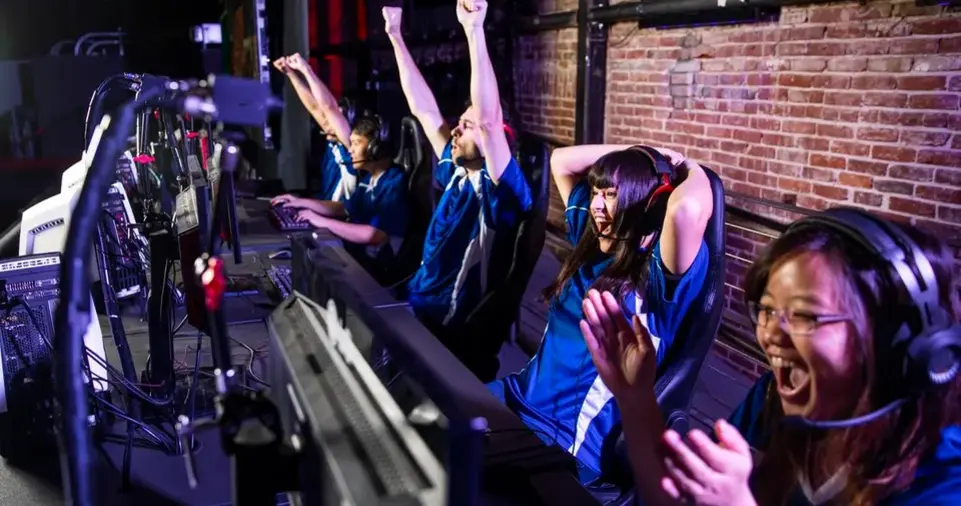Esports has rapidly evolved from a niche industry into a global phenomenon, offering numerous career opportunities beyond just playing video games.
Whether you aspire to become a professional player, coach, content creator, event manager, or even work in marketing and business roles, esports provides a wide array of career paths.
The industry continues to grow, with millions of fans worldwide, lucrative sponsorships, and international tournaments featuring multi-million-dollar prize pools.
With proper dedication, skill development, and strategic planning, you can build a successful career in esports.
This guide will walk you through the essential steps required to enter the esports industry, from mastering your game and competing in tournaments to networking and monetizing your skills.
Whether you’re an aspiring pro gamer or looking for a role behind the scenes, this guide will help you navigate the path to a sustainable and rewarding esports career.
Identifying Your Role in Esports
Exploring Different Career Paths in Esports
Esports offers a diverse range of career opportunities that cater to different skills and interests.
Before diving in, it’s crucial to identify which role suits you best. Below are some of the most popular career options:
Professional Player
If you are highly skilled in a particular game, you can aim to become a professional player.
This requires extensive training, participation in ranked matches, and competing in tournaments.
Top players are often recruited by esports organizations and receive salaries, sponsorships, and prize money.
Content Creator/Streamer
Gaming content creators and streamers have a significant influence in the esports industry.
By building a presence on platforms like Twitch, YouTube, or Kick, you can monetize your content through ads, subscriptions, donations, and brand sponsorships.
Esports Coach/Analyst
Coaches and analysts help esports teams develop strategies, improve gameplay, and analyze opponents.
This role is ideal for individuals who have a deep understanding of the game and enjoy mentoring others.
Event Organizer and Tournament Manager
Esports events and tournaments require proper management, from logistics and sponsorships to organizing venues and broadcasting.
If you have event management skills, this career path can be an exciting option.
Esports Marketing and Sponsorships
With esports becoming a billion-dollar industry, companies seek professionals to manage marketing campaigns, secure sponsorships, and promote brands within the esports ecosystem.
Mastering a Game and Developing Skills
Choosing and Excelling in an Esports Game
To succeed in esports, you must select a game that aligns with your interests and skills.
Popular esports titles include:
- First-Person Shooters (FPS): Counter-Strike 2, Valorant, Call of Duty.
- Multiplayer Online Battle Arenas (MOBA): League of Legends, Dota 2.
- Battle Royale: Fortnite, Apex Legends, PUBG.
- Sports & Fighting Games: FIFA, Street Fighter, Super Smash Bros.
Training and Skill Development
Once you have chosen a game, focus on improving your skills through:
- Regular practice to develop mechanical skills.
- Watching professional tournaments to learn strategies.
- Analyzing your gameplay to identify mistakes and areas of improvement.
- Learning from experts by taking online courses or hiring coaches.
Competing in Tournaments and Gaining Experience

Entering the Competitive Scene
To build your esports career, start by participating in ranked matches, local tournaments, and amateur leagues.
Websites like Faceit, ESEA, and Battlefy host regular competitions where players can showcase their talent.
Advancing to Professional Leagues
As you gain experience, aim for bigger leagues such as ESL, DreamHack, and official game-sponsored tournaments.
Performing well in these competitions increases your chances of getting noticed by esports organizations.
ALSO READ: How to Start a Multi-Niche Blog That Attracts Readers
Building Your Brand and Networking
Creating a Strong Online Presence
In esports, personal branding is just as important as skill. Establishing an online presence helps you attract sponsors, teams, and opportunities.
Utilizing Social Media and Streaming
Platforms like Twitter, Instagram, TikTok, Twitch, and YouTube allow you to connect with the gaming community. Regularly post highlights, engage with fans, and share insights about the game.
Networking in the Esports Industry
Join Discord servers, attend gaming conventions, and interact with professional players, coaches, and team managers. Building relationships can open doors to sponsorships and professional teams.
Getting Signed by an Esports Team
How to Get Recruited by Esports Organizations
Esports teams look for skilled players who demonstrate consistency, teamwork, and professionalism.
Steps to Join an Esports Team
- Perform well in tournaments and ranked matches to build a reputation.
- Create an esports resume showcasing your achievements and stats.
- Apply to teams and try out for open roster spots.
- Be active on social media to increase visibility among scouts.
Learning from Professional Players and Coaches

Studying the Best in the Industry
Watching professional esports tournaments and following top players can help you understand high-level strategies and techniques.
Reviewing and Analyzing Gameplay
Break down match footage, identify patterns, and implement successful strategies into your gameplay.
Esports Education and Certifications
Gaining Professional Knowledge
Many universities now offer esports degrees and certifications in gaming management, marketing, and coaching.
Online courses from platforms like Udemy, Coursera, and LinkedIn Learning can also be valuable.
Monetizing Your Esports Career
Earning Money Through Esports
There are multiple ways to generate income in esports:
- Salaries from teams (for professional players).
- Streaming revenue from ads, donations, and subscriptions.
- Sponsorships from brands and gaming companies.
- Prize money from tournaments.
- Affiliate marketing and merchandise sales.
Staying Dedicated and Adapting to Industry Changes
with Esports Trends** The esports industry evolves rapidly, with new games, updates, and opportunities emerging frequently.
Staying committed to improvement and adapting to changes is key to long-term success.
ALSO READ: How to Keep Your Data Safe with Cybersecurity Tips
Conclusion
A career in esports is both challenging and rewarding.
Whether you want to be a pro player, content creator, coach, or esports entrepreneur, the key lies in skill development, networking, and staying adaptable.
The industry continues to grow, offering immense opportunities for those willing to put in the effort.
By following the steps outlined in this guide, you can establish a strong foundation and turn your passion for gaming into a successful career in esports.







